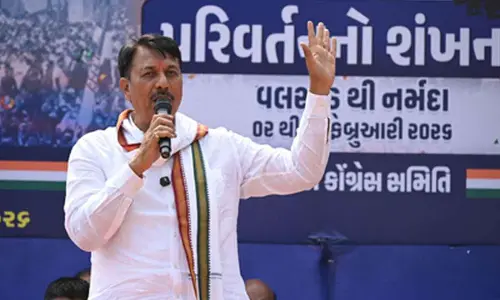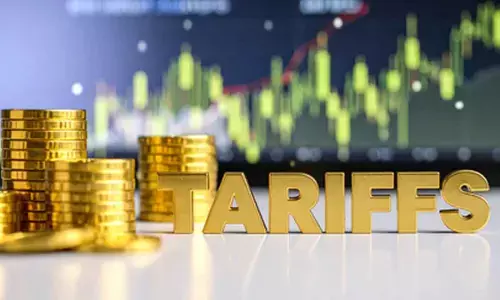Another global summit cops out on climate goals

A small Indian girl stormed the COP28 stage on the penultimate day of the conference in Dubai on December 11, shouting slogans to end fossil fuels. Just in the same way as she was gently ushered out of the hall, small and poor nations and islands’ appeals to the comity of nations to reckon with climate change-induced catastrophes were muted. Both developed and some developing nations even joined hands to alter the text of the global climate summit declaration from ‘phasing out’ to ‘phasing down’ fossil fuels, the use of which is precipitating things.
Science has proven the harmfulness of fossil fuels. Yet, none other than Sultan Al Jaber, the president of Cop28, who is United Arab Emirate’s minister of industry and head of the national oil company, has himself claimed there is “no science” indicating that a phase-out of fossil fuels is needed to restrict global heating to 1.5C. Voices of activists like the 12-year-old Indian girl, Licypriya Kangujam, and climate-conscious members did not give up, and put paid to these climate denials, which resulted in the feeble yet historic pronouncement of “transitioning away from fossil fuels” in energy systems.
As with the previous COP summits, the Dubai meet, too, exposed the developed nations. Rich in hypocrisy, besides spectacular fossil fuels-driven economic and technological progress, they preach to other countries, especially India and China, to end or drastically reduce use of coal. However, they aren’t prepared to finance the prohibitively expensive transition to green energy, nor are they fully prepared to give up the other fossil fuels. Hence the protests of Licypriya Kangujam and others, echoing the voices of the most majority of around 200 nations, including India: “If you’re really standing against the fossil fuels, then you must support me.”
A strong pushback against calls to curb coal consumption came from countries like India and China. India’s per capita emissions of 2 tonnes make it the third biggest CO2 emitter (8 per cent of world total) after China (31 per cent) and the US (14 per cent). Coal meets three-quarters of India’s energy needs and is needed even more to fuel its growth which is among the fastest in the world, consistently. It needs coal to be a $ 5 trillion economy by 2025 and become the third-largest economy by 2030.
Hence, coal use will continue in the absence of finance and technologies to ramp up the renewables to balance coal energy. Even though many nations including India pointing this out, COP28 has paid no heed. Ironically, it set no targets for end of fossil fuel consumption, but only suggests recourse to carbon capture, low-carbon hydrogen production and the like. C
limate change knows no boundaries. 2023 is set to be declared the hottest year the humanity has ever seen. With the world climate body’s goals thus falling short of expectations and, most importantly, its declaration not being binding on member-nations, it is left for individual countries to scale up their green efforts. India leads the pack here. It has set its sights on 500 GW renewable energy, amounting to half of its total energy needs by 2030. It will also reduce CO2 emissions by 1 billion tonnes by 2030, which reduces carbon intensity below 45 per cent by 2030. Finally, India wants to achieve Net-Zero (removing an equal amount of CO2 from the atmosphere as we release into it) by 2070. Other nations much catch up.














